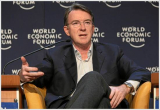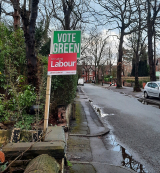
More Russian officials involved in the illegal invasion of Ukraine are hit with new sanctions, including movement and financial restrictions, announced by the Foreign Secretary today
(29th September). Eleven new designations will be imposed by the UK in response to Russia’s attempts to use sham elections to legitimise its illegal control of Kherson, Zaporizhzhia, Donetsk, Luhansk and Crimea, which are all part of Ukrainian sovereign territory.
Among those designated are an organisation and senior Russian officials, who have all directly acted to undermine Ukraine and threaten its territorial integrity.
They include:
The Central Election Commission (CEC) of Russia, the government agency that has arranged this month’s sham elections and last year’s referendums in illegally temporarily controlled parts of Ukraine.
Natalya Budarina, CEC Secretary, one of the most senior officials in the Central Election Commission.
Andrei Aleksyenko, Head of the so-called Kherson regional administration.
Marina Zakharova, Head of the so-called election commission in Kherson.
Today’s announcement comes one year on from Russia’s illegal attempt to annex the Ukrainian oblasts of Kherson, Zaporizhzhia, Donetsk and Luhansk after falsified and illegitimate sham referendums. Conducted on sovereign Ukrainian territory, through intimidation at gunpoint, these referendums were overwhelmingly rejected by the UN General Assembly in October 2022.
The Ukrainian population living in these temporarily controlled territories has endured large-scale atrocities at the hands of Russian forces, including torture, sexual violence, and mass forced deportation. To date, the Ukrainian authorities report that at least 19,000 Ukrainian children have been forcibly deported from their homes.
Russia has sought to destroy Ukrainian culture and identity in a bid to strengthen its illegitimate claim to Ukrainian territory, including by forcible issue of Russian passports, and imposition of Russian law, media, education, and currency.
In the latest futile attempt to normalise Russia’s illegitimate control of sovereign Ukrainian territory, Russia arranged illegal sham “elections” earlier this month. These elections are another violation of the territorial integrity of Ukraine and of the UN Charter. Earlier this month the UK confirmed, to the UN Security Council, evidence that the results were pre-determined.
Foreign Secretary, James Cleverly said:
Russia’s sham elections are a transparent, futile attempt to legitimise its illegal control of sovereign Ukrainian territory. You can’t hold ‘elections’ in someone else’s country.
The UK will never recognise Russia’s claims to Ukrainian territory - Crimea, Zaporizhzhia, Donetsk, Luhansk and Kherson are Ukraine.
Last year, the UK took immediate action in response to the illegal sham referendums in Ukraine, sanctioning top Russian officials who enforced the illegal votes in the temporarily controlled territories of Kherson, Zaporizhzhia, Donetsk and Luhansk.
This latest package of designations comes ahead of a new commemoration day in Russia, declared by Putin to celebrate the anniversary of his purported annexations, despite Russia having no legitimate basis for any claim to Ukrainian territory.
The people of Luhansk, Donetsk, Zaporizhzhia and Kherson oblasts voted overwhelmingly for Ukraine’s independence in 1991, and their continued resistance against Russian aggression shows their determination to remain part of an independent and sovereign Ukraine.
These latest sanctions serve as a stark reminder of the cost of such a flagrant assault on sovereignty, democracy and equality.
Together with our international partners, we have unleashed the largest and most severe package of sanctions ever imposed on a major economy.
The UK alone has sanctioned over 1,800 individuals and entities under its Russia sanctions regime, over 1,600 of which were sanctioned since Putin’s full-scale invasion. This includes 29 banks, accounting for over 90% of the Russian banking sector, and 129 oligarchs who had a combined net worth around £145 billion at the time of the invasion. Over £20 billion of UK-Russia bilateral trade (2021 figures) is now under full or partial sanction and there has been a 98.2% fall in Russian imports into the UK, and a 77.4% fall in UK exports to Russia.
Sanctions have sent Russia into recession, eroded Russia’s financial base and massively degraded the building blocks for Russia’s long-term growth.
Russia’s budget is heavily in deficit. Rather than the surplus the Russian government predicted for 2022, Russia suffered an annual deficit of $47bn—the second highest of the post-Soviet era. Many of the trends contributing to the deficit in 2022 will continue in 2023, especially downward pressure on oil and gas exports.
Now, over 60% of Putin’s ‘war chest’ foreign reserves – worth £275bn – have been immobilised. Vladimir Yaitskiy from Kyiv, Ukraine, Wikimedia commons.








































